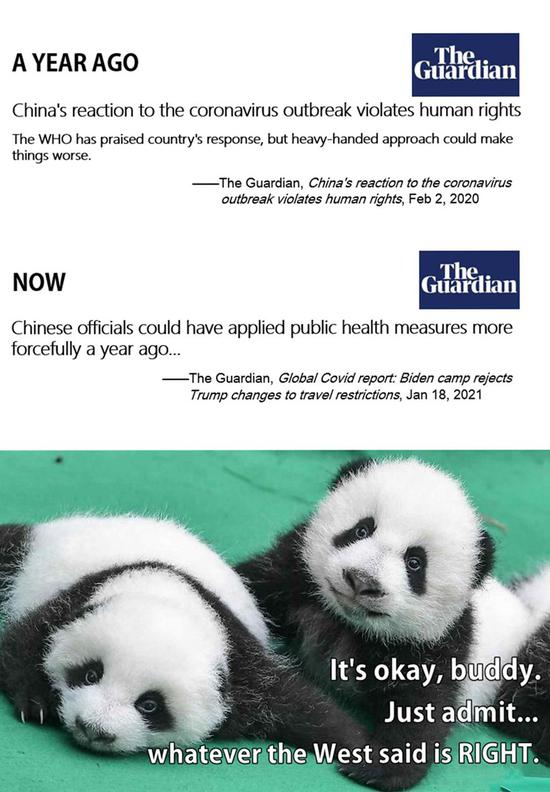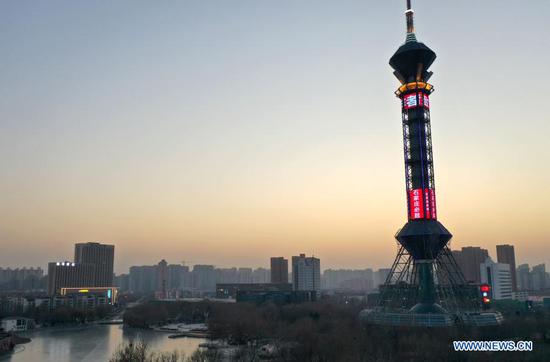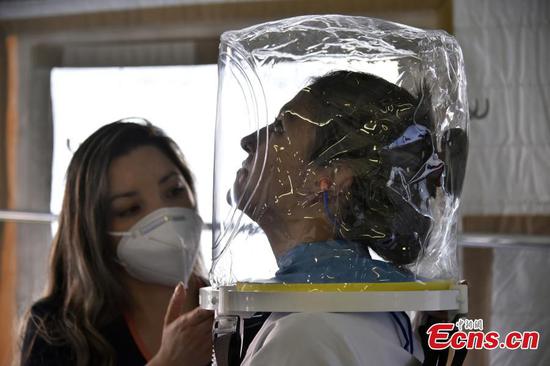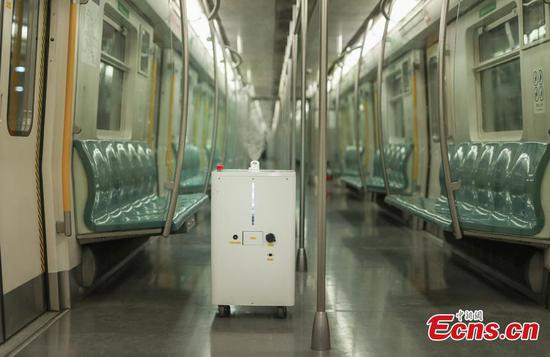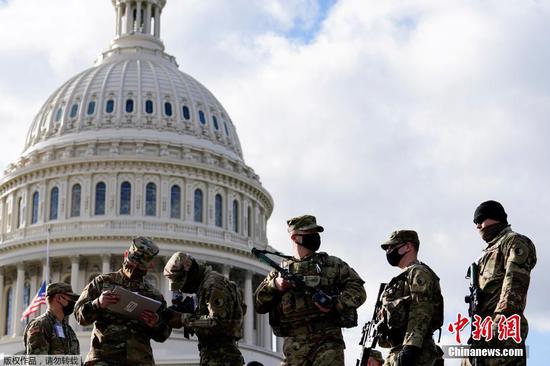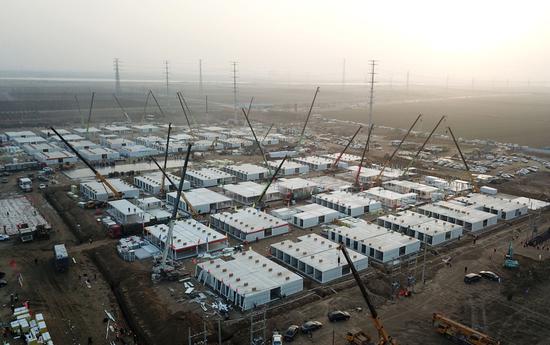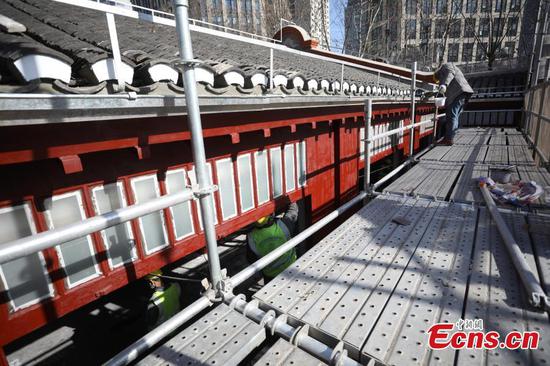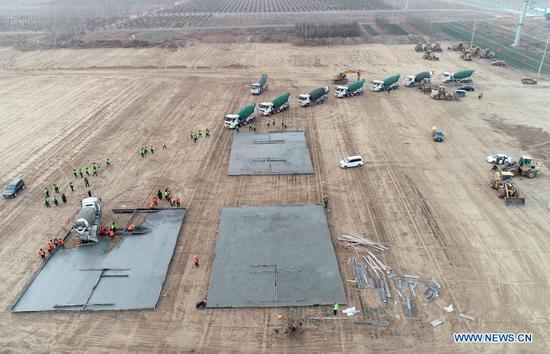The Bank of Japan (BOJ) on Thursday trimmed its economic projection for the current business year through March, down 0.1 percent.
The bank also maintained its large-scale monetary stimulus as the country is struggling to curb a COVID-19 resurgence under a second state of emergency.
After a two-day policy-setting meeting, the BOJ released a quarterly report that the Japanese economy is expected to shed 5.6 percent in fiscal 2020, revised from a previous projection of 5.5-percent contraction in October.
"Japan's economy has picked up as a trend, although it has remained in a severe situation due to the impact of COVID-19 at home and abroad," the BOJ said.
The central bank also forecast a 0.5-percent year-on-year decrease in the core consumer price index excluding volatile fresh foods, while it was earlier projected to drop 0.6 percent.
However, the economy measured in real gross domestic product in fiscal 2021 is likely to recover and increase 3.9 percent, against the previous estimate of a 3.6-percent expansion, the bank said.
BOJ Governor Haruhiko Kuroda on Thursday warned of downside risks to the country's economy stricken by another state of emergency over COVID-19.
The bank will take additional easing steps if needed, Kuroda said. Earlier in the day, the BOJ board decided to maintain its ultra-loose monetary policy.
"There is heightened uncertainty over the impact that the spread of infections would have on the economy and finance," Kuroda said at a press conference after the policy meeting.
"We will be keeping a close watch and will not hesitate to take additional easing steps when deemed necessary," he said.









